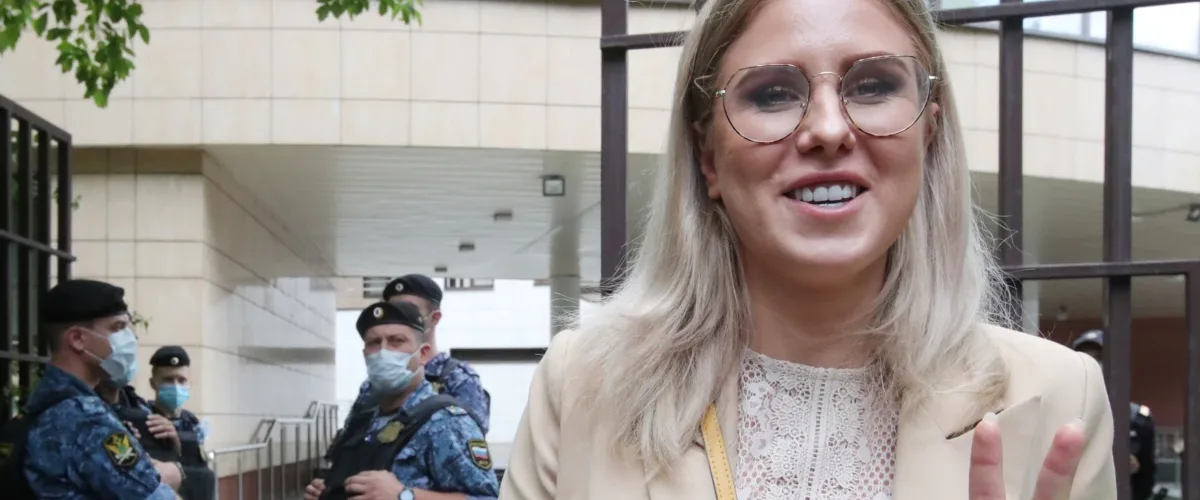An Estonian newspaper is reporting that Russian opposition politician Lyubov Sobol has settled in Estonia with her young daughter after fleeing her homeland this summer following her conviction and sentencing at a Moscow court on charges widely seen as politically motivated.
Sobol, a close associate of imprisoned Russian opposition politician Aleksei Navalny, arrived in Estonia in August, Eesti Ekspress reported on September 21, after she was found guilty for allegedly violating coronavirus protocols with her calls for people to rally in support of the Kremlin critic. She was sentenced to 18 months of parole-like limits on her freedom.
Her lawyer called the court ruling “written by investigators and affirmed by prosecutors,” and said her client would appeal.
Media reports later said that Sobol and Navalny’s spokeswoman Kira Yarmysh — who was found guilty of the same offense and handed the same sentence — fled Russia, which has not been confirmed either by the two women or their lawyers.
The case against Sobol was launched after she and several other Navalny associates and supporters were detained on the eve of unsanctioned mass rallies against Navalny’s latest arrest in mid-January.
Eesti Ekspress said that contacts in Estonia helped Sobol settle in and enroll her daughter in school.
“She is going between a few places. She’s also going elsewhere, outside of Estonia,” said a friend of Sobol who has been assisting her, according to the newspaper.
It said the friend did not want to share more details about Sobol so as not to “hand out information to the Kremlin’s butchers.”
According to the Moscow ruling in early August, Sobol was barred from leaving her home between 10 p.m. and 6 a.m., attending public events, or leaving Moscow. Sobol was also ordered to report to a parole officer three times a month.
Separately, another court in the Russian capital sentenced Sobol in April to a one-year suspended sentence of correctional labor after finding her guilty of trespassing in what she described as a ruling designed to silence her.
Navalny was arrested after returning to Russia from Germany, where he was treated for a near-fatal poisoning with a Novichok-type nerve agent that he says was ordered by Russian President Vladimir Putin.
The Kremlin has denied any role in the incident, which was the latest of numerous attacks on Navalny.
In February, Navalny was convicted of violating the terms of a suspended sentence related to an embezzlement case that he has called politically motivated. The remainder of Navalny’s suspended sentence, 2 1/2 years, was then replaced with a real prison term.


















